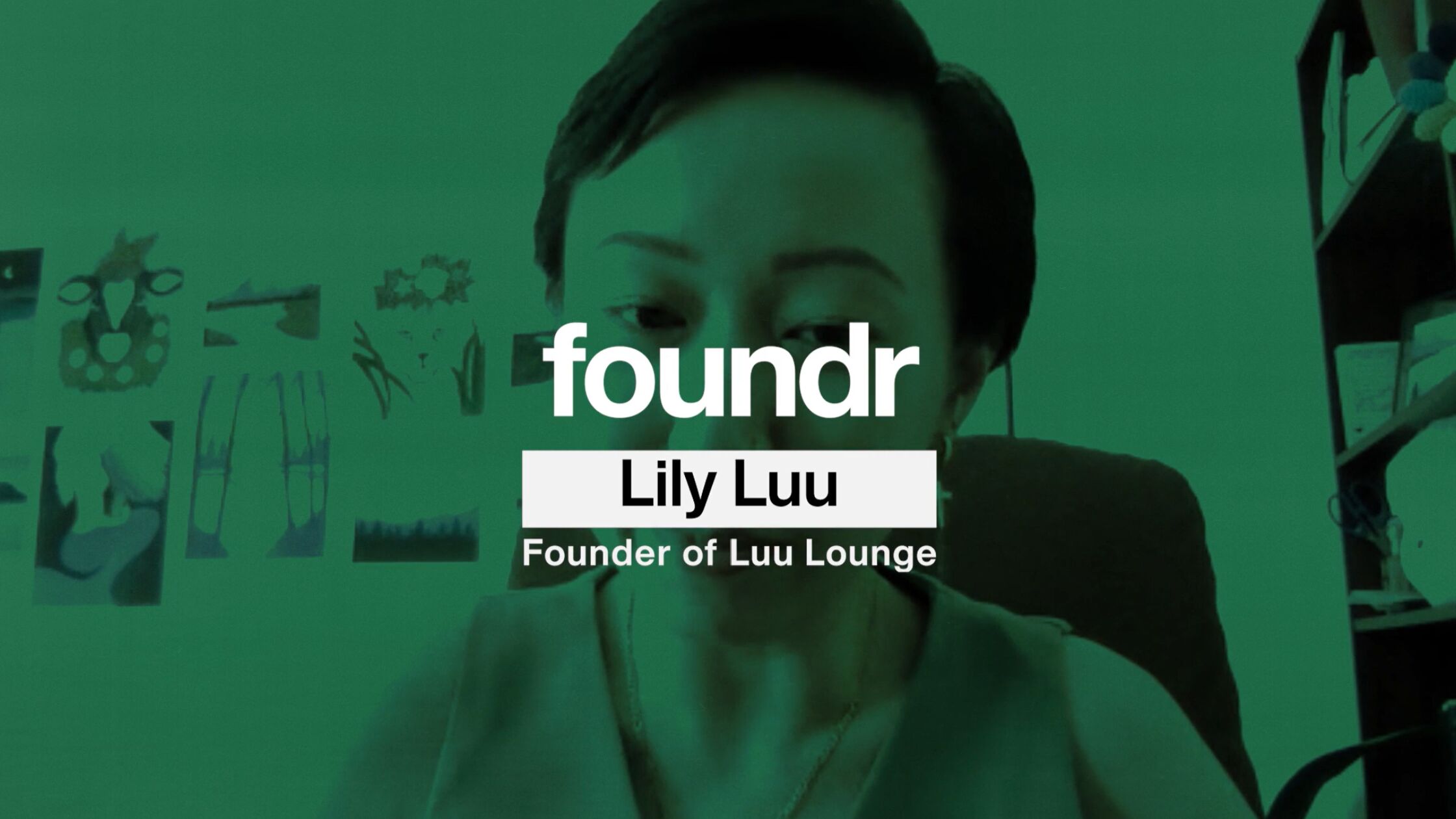Devorah discovered it when she landed a $144,000 annual contract for her client. Sid discovered it when clients were lined up to hire him before he even left his job. Jeanette discovered it when, after working on a client project, she finally felt like she had found her home.
What is “it?”
It’s the idea that makes the difference between barely scraping by and carving out a thriving career as a consultant. The thing that distinguishes you from all the other gig workers fighting for attention in an oversaturated market. It’s your competitive advantage because you are THE expert on that one thing that you’re really, really good at.
In other words, it’s your niche.
And as you can see, finding yours makes all the difference, in terms of your clients, money, and well-being.
EXCLUSIVE FREE TRAINING: Successful Founders Teach You How to Start and Grow an Online Business
Niche? What is that, French? And how do you pronounce it?
Oui, c’est français. Actually, the French use “niche” to describe a dog kennel or a small alcove like this:
In the business world, a niche refers to a focused, targetable portion of a market or a narrow set of specialized, in-demand skills.
There are a number of benefits to targeting a niche market or narrowing your service offerings, including:
- Less competition – Other consultants may not be aware of your particular niche market, and corporate consultancies won’t want to bother with it.
- Fine-tuning your service – When you understand the unique problems of a certain type of client, you can create specialized services to solve them.
- Earning an expert reputation – Becoming known as the specialist in a particular type of service makes your consultancy more likely to be recommended to others by clients.
- Lower demand on resources – Trying to appeal to everyone can spread your time, effort, and budget thin. When you focus your efforts on a defined group of clients or a certain kind of service, you’ll be able to put more resources into the quality of your output.
- Making your mark – Establishing a strong position in a particular market can help you to expand into a larger market as you grow your consultancy.
Oh: and it’s pronounced “NEESH.”
Not “NITCH.”
Not “NIETZSCHE.”
NEESH.
We are the Knights Who Say Ni! (che)
How Do You Know When You’ve Found a Niche?
It can be an elusive moment. Not everyone recognizes it when it happens. But once you’re there, you’ll notice certain patterns:
- Your work gets more efficient because you’ve established a repeatable process.
- You can start charging higher rates because your time is at a premium.
- Strangers/acquaintances are sending leads your way because of your reputation as the expert in your field of specialization.
- Your project calendar fills up two or three months ahead of time.
- Instead of asking about your rates/qualifications, prospects inquire about your availability.
- You get invitations from influencers in your field to participate in podcast interviews, webinars, workshops, and speaking engagements.
How Do You Find Your Niche?
There’s a subtle art to finding the right niche for your consultancy. It can take years of experimentation, or you can hit the perfect niche out of the gate. You may try out a variety of services and target markets, or your perfect combo of customers and service offerings could find you.
I invited some successful consultants from across a range of industries and disciplines to share their stories. Their backgrounds and career trajectories may vary, but I’ve uncovered some common themes so you can use them as a roadmap for discovering your own consulting niche.
How Successful Consultants Found Their Niches
Turn Your Corporate Role into a Consultancy
If you’re already working for a company in a role that you enjoy, but long to call the shots on your schedule and on the kinds of projects you take on, it could be a smart move to turn the job you already have into a business. Here’s why:
Ready-made frameworks – You can carry the experience and training you’ve already gained in your full-time role into your consulting methodology without having to “reinvent the wheel.”
Growth marketer Sid Bharath brought an important leading edge from his days as VP of growth at Thinkific: a repeatable framework he could apply to every client project.
Sid’s growth marketing framework gave him the space to discover which types of startups he wanted to work with, and it got easier to pitch projects and execute them as he started to develop a standardized playbook of his services.
“I helped companies with their growth strategy, by applying my framework to identify their best channels,” Sid says. “As 2017 ended and 2018 started, my work with these companies continued and they, in turn, referred me to more clients.”
Sid’s advice for making money with a consulting niche?
“While I think many consultants and freelancers have some idea of their niche, they’re too afraid to say no to something that falls outside because they don’t want to give up the money.” Sid says. “Just trust that the money will come.”
Extensive network – You already have connections in the industry that you can tap for potential clients and referrals.
When SaaS marketing and growth advisor Georgiana Laudi announced that she was leaving her in-house role, she was immediately struck by the offers and requests to either go back in house or come on as a consultant to SaaS companies.
“It was evident that I had a lot of experience in quite a young industry and that senior marketers who could say they’ve worked in this niche for as long as I had were rare,” she says.
Once she went on her own, she further cultivated her approach.
“I’ve focused on the SaaS industry for many years now,” Georgiana says. “I think the biggest difference maker for me was finding my sweet spot of *how* I work within that niche—guiding teams on how to reach their goals, as an advisor. Working this way is also the highest ROI possible for the companies I work with.”
Georgiana says that the best decision she made was following her passion as a consultant.
“If you’re lucky enough to find a problem you’re both passionate about and uniquely qualified to solve, don’t look back.”
Solve a problem no one else is solving – Some former corporate employees experience the same problem in their job over and over again. They decide to take matters into their own hands by creating a service to solve it, and offer that solution to their network.
Kamil Rextin was working as a growth and demand generation marketer at various startups when he decided to create 42 Agency, where he builds the strategy and processes behind digital marketing campaigns for SaaS companies.
“I knew it was a hard skill to find/hire for because 1) I tried hiring for it at some point, 2) I knew from friends and my network it was hard to hire for, 3) I was getting messages from recruiters,” Kamil says. Now he can charge a premium for his service and he gets a lot of business referrals.
Kamil says it’s important that anyone going into consulting has validated demand for their services.
“Focus on what you are good at,” he says. “Don’t try to be everything for everyone. BUT do some research that there is a market for what you’re trying to sell (same advice as building a product, really).”
Pursue your purpose – You have the freedom to serve a client segment you truly care about and enjoy helping, rather than working to build someone else’s dream.
Before she became a corporate and personal branding consultant, Kristin Gallicci was the chief marketing officer of a health company.
“It was the end of the contract with this particular company and I wanted to explore consulting work to startups, an area where I felt I could have a greater impact,” Kristin says.
She started creating content on LinkedIn, which led to being named a LinkedIn Top Voice and receiving interest from companies and founders to help with their marketing challenges.
“LinkedIn gave me the platform to share my voice,” Kristin says. “It was a model for the work I help many of my clients with today.”
Once she understood her strengths and defined the work she loves to do and where she can be most effective, the opportunities have come to her.
“I always knew marketing was my passion, but I needed to hone what aspects of marketing I was best suited to and how could I marry that to the opportunities in the market,” she says.
EXCLUSIVE FREE TRAINING: Successful Founders Teach You How to Start and Grow an Online Business
Pivot From a Low-Paying Profession to a High-Paying Passion
Some people find their consulting niche out of necessity because their full-time jobs don’t pay enough or the freelance service they provide has too many competitors. Here’s why pivoting from a lower paying job to a specialized consulting career is a big, bold, brilliant move:
Low risk, big rewards – You’ve got little to lose if your job is barely paying the bills.
As a high school teacher and assistant principal, Brendan Hufford was doing everything he was supposed to do to rise in the ranks of education. But it wasn’t enough to make him financially secure.
“I did everything right in my career only to be rewarded with 25 extra pounds on my midsection, Sunday night panic attacks, and an unhealthy relationship with alcohol. All for the privilege of being the lowest paid assistant principal in my state,” he says.
To help make ends meet, Brendan started experimenting with selling online.
“I started two podcasts, sold digital products, started an ecommerce business, an affiliate blog, etc.” Brendan says. “I dined at the buffet of online entrepreneurship and had a taste of everything! It wasn’t until I started consulting that I realized that I could be paid (and paid well) for what I know.”
He soon discovered that his SEO abilities were in demand and made waves in the local photography community.
“Initially, I just looked at who was asking for the most help, and that was local photographers. I did SEO almost completely for photographers for the first two years,” Brendan says.
If you’re considering going into consulting, here’s what Brendan recommends:
“Work for one for free to produce a huge ROI, turn that into a case study, and then ruthlessly market that case study to other people in that industry/niche.”
Ongoing professional development – When you concentrate on further developing one aspect of your skillset, you can establish yourself as an authority…and charge higher fees.
Before she became a well-paid copywriting specialist, Chavy Helfgott did piecemeal work as a freelancer, writing magazine articles and blog posts.
“I got paid pennies for difficult work,” Chavy says. “I was looking for a challenge that would make the most of my skills AND increase my income.”
She started taking online courses about ecommerce copywriting, a niche skill in the marketing world that’s growing in demand as more retail companies rely on online business for revenue.
The minute she changed her title on LinkedIn from “freelance writer” to “Ecommerce Branding Copywriter,” Chavy saw a change in the quality of clients and the pay scale.
“I get jobs I really enjoy, I can charge more, and I’m ‘top-of-the-mind’ for my target audience, because they know I service people like them!” Chavy says.
Combine creativity with business savvy – Marry your out-of-the-box edge with strategic thinking to find opportunities to sell your services.
Kerri Twigg was teaching drama and working as a community arts manager when she realized that it just didn’t pay the bills.
“I loved the work, but it paid poorly. I was crying about money,” Kerri says.
She first noticed a need for her creative approach to life when she was trying to decide what to do next.
“I created a new method of figuring out what I was good at because I didn’t see something that would work for me,” Kerri says. “I started writing about it on LinkedIn and people started to ask to work with me.”
The way she offers her services as a job search strategist has transformed as she scales her business, but Kerri’s mission remains the same: helping people figure out their story to land ideal work.
Change the status quo – Is there something about your industry you want to pick a fight with? Stand up and be heard by proving there’s a better, smarter way to go about solving a problem in your market.
Professional athlete-turned-SEO consultant Elliott Davidson noticed that clients were coming to him after having been burned by large, expensive marketing agencies.
“You have some very large agencies charging top dollar,” he says. “Then, speaking with potential clients, I soon realized how little specialist knowledge they had around digital marketing, especially SEO. This was one of their main reasons for speaking with me and to consider working with me.”
Since specializing in SEO, Elliott has seen a big boost in growth to his business.
“I’ve been able to scale up my efforts to now run my own agency called Contrast where we do SEO and I now employ five other people to help me.”
Search for What Sparks You and Sets You Apart
While some people immediately recognize their “thing,” most people find it impossible to find their niche from the get go. They work as generalists or do side jobs for years before they realize where their true talents—and real business opportunities—lie. Taking the time to explore your chosen field and discover what inspires you can be a wise business move. Here’s why:
Experimental mindset – You remain flexible and open to new discoveries when you’re willing to try out new things and see what fits.
Jeanette Castañeda loved working with business owners, but really didn’t like either bookkeeping or HR, which she had fallen into when she started her career. She went in search of a new profession, one she would love. After a few false starts, she zeroed in on marketing.
“I knew I needed a specialization, but wasn’t sure what that would be,” Jeanette says.
As luck would have it, the main client she was assigned to at the marketing agency she worked for was an email marketing company.
“And that was it,” she says. “I was already happy with marketing, but when I focused on email marketing, it felt like I had finally, finally found my home.”
Now that she’s running her own consultancy as an email marketing specialist, Jeanette is riding high.
“I wake up in the morning, every morning, excited to go to work,” she says. “As someone who spent over 10 years doing work she disliked, there are no words to describe the joy of knowing that no matter how hard my day might be, it will be spent doing work I enjoy.”
Want to make your Monday mornings shine? Here’s what Jeannette advises:
“Grab a pencil and paper and write the following lists: things you like to do, things you are good at. The intersection of those two things gives you a smaller list of ‘potential work,’” she says. “Now examine that list and do some research. Who will pay you money to do the things on your potential work list? Keep asking questions about that list and you’ll find your very special place.”
Established business processes – While you’re searching for your niche, you can perfect your business workflows so when you finally land on the right offerings and audience, everything is in place to get work done and get paid on time!
Betsy Muse has been writing copy for decades, “long before computers were small enough to fit in the average home,” she says.
She transitioned from direct mail to writing copy mostly online almost a decade ago. Then she transitioned to conversion copy after realizing how much she enjoyed measuring the impact her copy had on the growth of a business.
“Narrowing my focus and specializing in specific components of the sales funnel has resulted in more leads and has allowed me to streamline my processes,” Betsy says.
Not only does Betsy stick to a specialized service, she also focuses solely on working with women entrepreneurs.
“I chose to work exclusively with women-led businesses because I felt and still feel a strong emotional pull to help women succeed,” Betsy says. “I think it helps to feel a strong connection to your chosen niche. When choosing a specialty ask yourself if you will enjoy doing the work every single day.”
The “Lightning Bolt” moment – There’s nothing better than that “eureka” feeling when you find the place where you belong. And it’s impossible to take that moment for granted after you’ve spent so much time seeking it.
Devorah Hager was writing copy on the side when a proposal she wrote for a telecom company landed them a $144,000 annual contract.
“It was a powerful moment for me,” Devorah says. “I believe good businesses should have powerful marketing that empowers consumers to make better choices, and I wanted to be the one who writes the copy that makes that happen.”
Now she specializes in conversion copywriting for the telecom industry.
“I have a clearer idea of how and where to market, and don’t waste time on leads that aren’t a good fit. I also command higher rates as a specialist, and research is smoother and faster.”
Devorah recommends to anyone seeking their consulting niche to be open to opportunity.
“I think it finds you,” she says. “Look at the work you’ve been doing, and what excites you. Look at where you have connections. Look at where great leads are coming from. And make sure it’s an industry that values what you offer, and is willing to pay what you want to get.”
EXCLUSIVE FREE TRAINING: Successful Founders Teach You How to Start and Grow an Online Business
A Dream Career Is a Niche Your Heart Makes
As you can see, finding where you belong in the consulting and freelancing world is different for everyone. But if you pay attention and stay open to listening to the needs of your industry, your clients, and your own sense of fulfilment, an exciting (and well-paid) new chapter awaits.
Have you found an interesting niche in your field? Let us know in the comments!



























